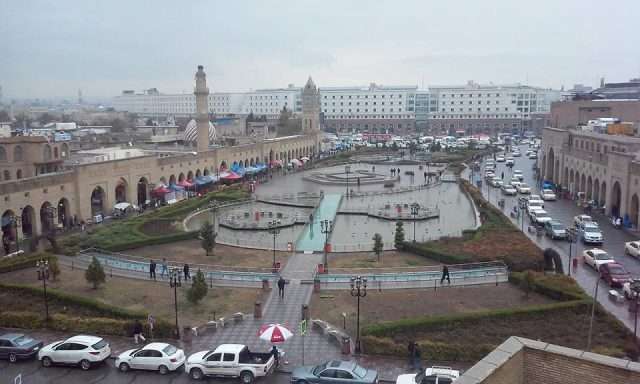
The Manama Dialogue in Bahrain highlighted that the United States are still interested in Middle Eastern geopolitics and dynamics. In this regard, the White House might increase its cooperation and connection with Kurdistan to coordinate the fight against the Islamic State and contrast the Iranian and Russian presence and influence in the region.
On Saturday 20th, 2021, Prime Minister of Iraqi Kurdistan Masrour Barzani met with the U.S. National Security Council Coordinator for the Middle East and North Africa, Brett McGurk, to discuss relations between Erbil and Washington. They met on the sidelines of the Manama Dialogue organized by the International Institute for Strategic Studies (IISS) in the capital of Bahrain. The IISS Manama Dialogue is an international forum for Government ministers and members of the expert, opinion-forming and business communities to debate the Middle East’s most pressing security challenges.
The parties discussed Kurdistan – United States relations and stressed the value of continued cooperation to ensure stability in Iraq. Barzani and McGurk also analyzed parliamentary elections held in Iraq on October 10th, 2021, including efforts to create a new Government in Baghdad.
In the framework of the Manama Dialogue, Barzani also held separate meetings with representatives of the United Kingdom, Germany and Arab countries, with whom he discussed security issues in the region, Iraqi post-election policy and the need for closer cooperation to address current problems in the Middle East region.
Why does this matter?
- The United States are still interested in the Middle Eastern dynamics and geopolitics. Although the U.S. started a dimensioning of its military presence in the region, the White House cannot allow foreign actors such as the Islamic Republic of Iran or Russia to gain terrain and influence in the Middle East.
- During the Manama Dialogue in Bahrain, U.S. Defense Secretary Lloyd Austing confirmed that Washington’s unshakable and robust commitment to maintaining security in the Middle East is strong and unshakable.
- Iraq still represents a geopolitical ‘battleground’ among regional and international players. In this framework, the United States needs to strengthen their cooperation with Kurdistan, which has been targetted by the Russian Federation in the last period, particularly its energy resources (The Middle Eastern expansion of Tatneft; Il ruolo del Tatarstan nella politica estera russa in Iraq).
- During the meeting between Masrour Barzani and Lloyd Austin, the U.S. Defense Secretary called Kurdistan ‘an important U.S. ally’ and reaffirmed Washington involvement in supporting Erbil and the Peshmerga forces in their fight against the Islamic State.
- The recent Iraqi elections have created a deep internal fracture in Iraqi society. Considering the Islamic Republic of Iran might exploit the recent Iraqi political crisis, the White House needs to reaffirm regional partnership and promote joint efforts to counter the Iranian foreign policy.
- Even though the United States significantly influences the Iraqi domestic trends and regional dynamics, Baghdad does not want to sign the Abraham Accords. During the Manama Dialogue in Bahrain, the Foreign Affairs Minister of Iraq, Fuad Hussein, said that his country would not normalize relations with Israel in the near future.
- Since Israel is the closest U.S. ally in the Middle East and Washington’s bulwark against the Islamic Republic of Iran, the White House aims to normalise the relations between Tel Aviv and the Middle Eastern countries to create a strong military and diplomatic and economic alliance against Tehran.
- The Manama Dialogue in Bahrain pointed out the U.S. approach in the Middle East, particularly in Iraq and Kurdistan, reassuring regional actors about the White House’s involvement in Middle Easter dynamics after in July 2021 President Joe Biden announced that the United States will end its combat mission in Iraq.



